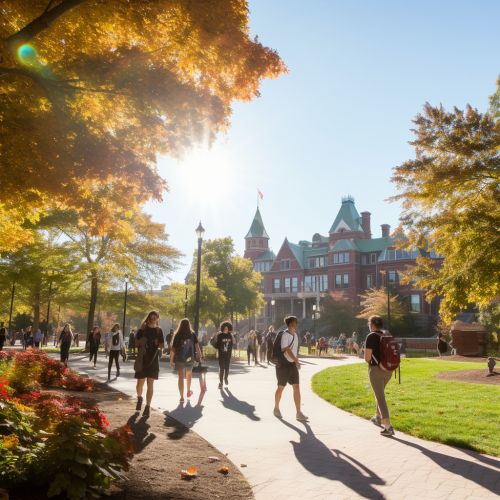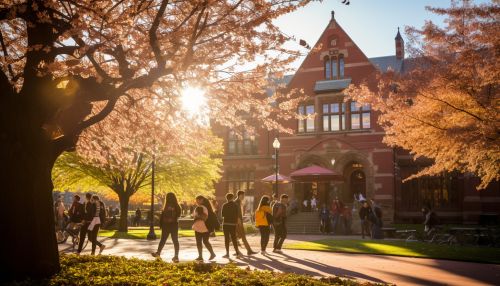List of Universities and Colleges in the United States
Overview
The United States is home to a diverse range of universities and colleges, many of which are recognized globally for their academic excellence and research contributions. These institutions range from large research universities to small liberal arts colleges, and from for-profit online universities to community colleges.
Public Universities
Public universities in the United States are primarily funded by state governments and are often larger than private institutions. Some of the most notable public university systems include the University of California system, the State University of New York system, and the University of Texas system. These universities often have multiple campuses spread across the state, each offering a variety of undergraduate and graduate programs.


Private Universities
Private universities, on the other hand, rely on tuition, endowments, and donations for funding. They tend to be smaller and more selective than public universities. Some of the most prestigious universities in the United States, such as Harvard University, Stanford University, and Massachusetts Institute of Technology, are private institutions.
Liberal Arts Colleges
Liberal arts colleges are unique to the American higher education system. These schools emphasize undergraduate education and provide a broad base of skills in the humanities, social sciences, and sciences. Notable liberal arts colleges include Amherst College, Williams College, and Swarthmore College.
Community Colleges
Community colleges are two-year institutions that provide affordable post-secondary education as a pathway to a four-year degree. They offer associate degrees and certificates in a wide range of vocational and academic areas. Some of the largest community college systems in the United States include the Los Angeles Community College District and the City Colleges of Chicago.
For-Profit Universities
For-profit universities are educational institutions that are owned and operated by private, profit-seeking businesses. These institutions often offer flexible scheduling and online degree programs, catering to non-traditional students such as working adults. Examples include the University of Phoenix and DeVry University.
Online Universities
With the advent of the internet, online universities have become increasingly popular. These institutions offer a variety of degree programs that can be completed entirely online, providing flexibility for students who may not be able to attend traditional on-campus classes. Examples of online universities include Western Governors University and Southern New Hampshire University.
Historically Black Colleges and Universities
Historically Black Colleges and Universities (HBCUs) are institutions of higher learning that were established before 1964 with the intention of primarily serving the African American community. These institutions continue to play a critical role in enabling access to higher education for students of color. Notable HBCUs include Howard University, Spelman College, and Morehouse College.


Women's Colleges
Women's colleges are institutions designed for women who seek an environment in which they can focus on their academic pursuits without the distractions and challenges that can be present in coeducational environments. Some of the most prestigious women's colleges in the United States include Wellesley College, Smith College, and Barnard College.
Religiously Affiliated Universities
Many universities and colleges in the United States are affiliated with a religious denomination. These institutions often integrate faith and learning, providing a holistic educational experience. Examples include Notre Dame University (Catholic), Brigham Young University (Latter-Day Saints), and Baylor University (Baptist).
